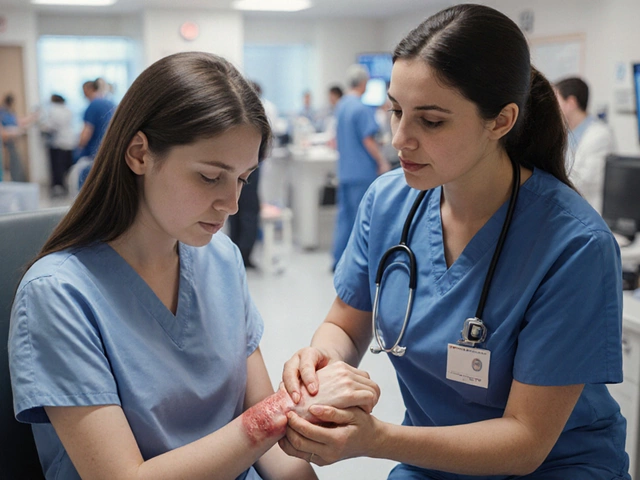Heart Surgery Tips: What to Know Before, During & After
Facing heart surgery can feel overwhelming, but the right tips make a huge difference. Whether you’re gearing up for a bypass, valve repair, or any cardiac procedure, knowing the basics helps you stay calm and recover faster.
Before Surgery: Getting Ready
First, talk openly with your surgeon. Ask about the exact type of operation, why it’s needed, and what the success rate looks like for patients with your health profile. Write down every question – you’ll forget a few once you’re in the hospital.
Next, run a quick health audit. Stop smoking at least two weeks before the date, and limit alcohol. Both habits make it harder for your lungs to clear anesthesia and can slow wound healing.
Nutrition matters too. Aim for a protein‑rich diet (eggs, legumes, lean meat) a week before surgery to boost tissue repair. If your doctor permits, a low‑sodium, high‑fiber plan reduces swelling and keeps your blood pressure steady.
Arrange a support crew. Pick a family member or friend to stay with you after the operation. They’ll manage medications, help with meals, and keep an eye on any warning signs like fever or chest pain.
Finally, pack a post‑op bag. Include loose‑fit clothing, slippers, a pillow for side‑lying comfort, and any prescribed meds. Having everything ready cuts stress on the day you return home.
During Surgery: What Actually Happens
Most heart procedures last 3‑6 hours, but the exact time depends on the complexity. For example, a simple coronary artery bypass can wrap up in about 3 hours, while a multiple‑valve replacement may take longer. Your surgical team monitors your heart rate, blood pressure, and oxygen levels constantly, so you’re never truly “asleep” – you’re just under deep anesthesia.
Ask the surgeon if a minimally invasive approach is possible. Smaller incisions mean less pain, shorter hospital stays, and a quicker return to daily activities.
After Surgery: Recovery Hacks
Recovery starts the moment you wake up. Pain control is key – take prescribed painkillers on schedule, not just when you feel pain. This keeps you moving, which lowers the risk of blood clots.
Gentle breathing exercises (incentive spirometry) every hour for the first 24 hours keep your lungs clear. Even a short walk around the hospital ward, if approved, improves circulation and speeds healing.
Watch your incision. Keep it clean and dry, and report any redness, swelling, or drainage to your doctor immediately.
Nutrition continues to play a big role. Add vitamin‑C rich foods (citrus, bell peppers) and zinc sources (nuts, seeds) to support tissue repair. Stay hydrated – aim for at least 2 liters of water daily unless your doctor advises otherwise.
Follow up appointments matter. Your surgeon will check the stitch line, heart function, and cholesterol levels. Bring a list of any new symptoms; early intervention prevents complications.
Lastly, be patient with yourself. Most people feel normal activities within 6‑8 weeks, but full strength can take up to 3 months. Celebrate small wins – a longer walk, fewer meds, or a better night’s sleep.
Heart surgery is a serious step, but with these practical tips you’ll go in prepared, stay safe during the operation, and recover with confidence.





